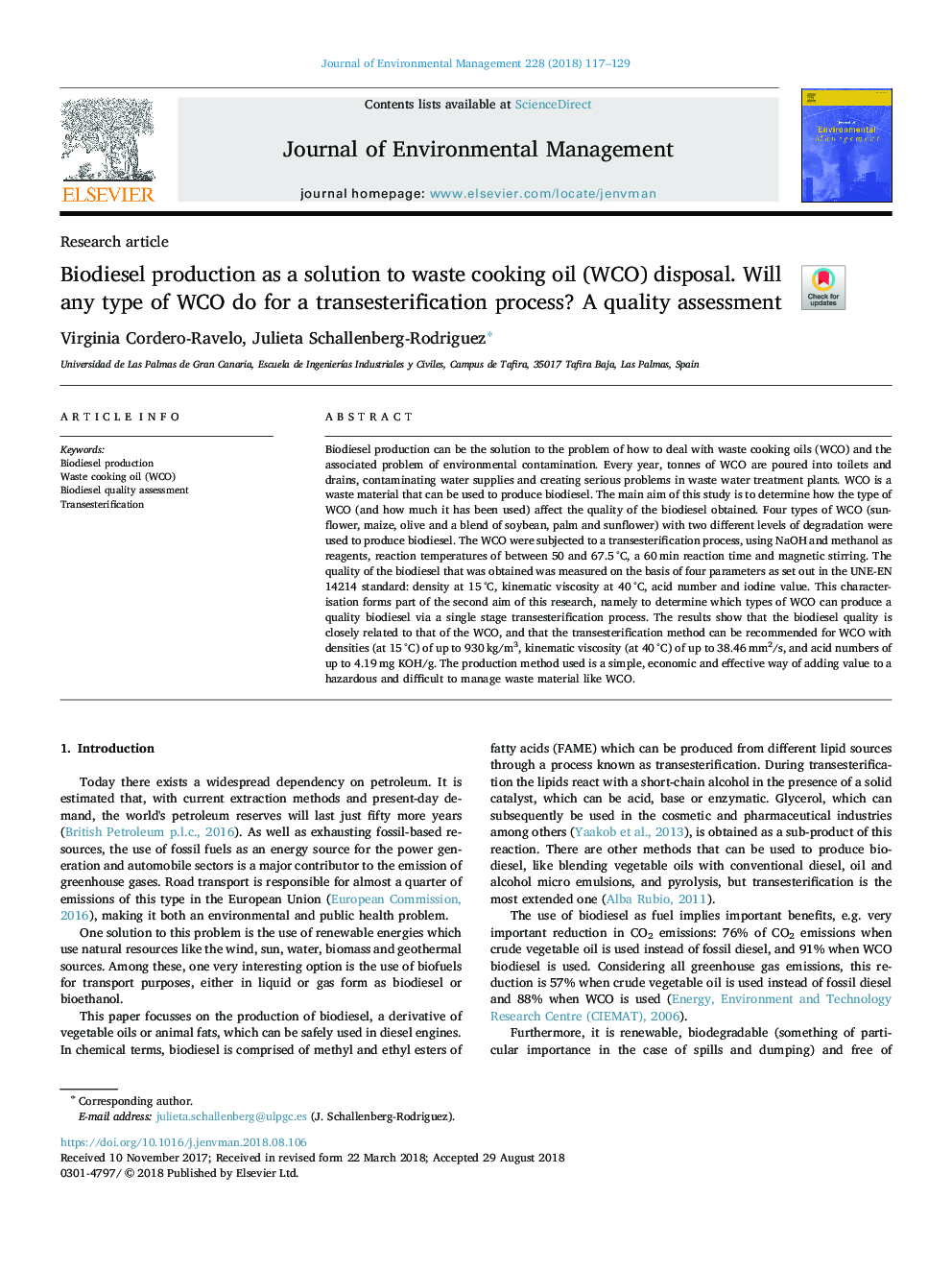| کد مقاله | کد نشریه | سال انتشار | مقاله انگلیسی | نسخه تمام متن |
|---|---|---|---|---|
| 10149026 | 1646715 | 2018 | 13 صفحه PDF | دانلود رایگان |
عنوان انگلیسی مقاله ISI
Biodiesel production as a solution to waste cooking oil (WCO) disposal. Will any type of WCO do for a transesterification process? A quality assessment
دانلود مقاله + سفارش ترجمه
دانلود مقاله ISI انگلیسی
رایگان برای ایرانیان
کلمات کلیدی
موضوعات مرتبط
مهندسی و علوم پایه
مهندسی انرژی
انرژی های تجدید پذیر، توسعه پایدار و محیط زیست
پیش نمایش صفحه اول مقاله

چکیده انگلیسی
Biodiesel production can be the solution to the problem of how to deal with waste cooking oils (WCO) and the associated problem of environmental contamination. Every year, tonnes of WCO are poured into toilets and drains, contaminating water supplies and creating serious problems in waste water treatment plants. WCO is a waste material that can be used to produce biodiesel. The main aim of this study is to determine how the type of WCO (and how much it has been used) affect the quality of the biodiesel obtained. Four types of WCO (sunflower, maize, olive and a blend of soybean, palm and sunflower) with two different levels of degradation were used to produce biodiesel. The WCO were subjected to a transesterification process, using NaOH and methanol as reagents, reaction temperatures of between 50 and 67.5â¯Â°C, a 60â¯min reaction time and magnetic stirring. The quality of the biodiesel that was obtained was measured on the basis of four parameters as set out in the UNE-EN 14214 standard: density at 15â¯Â°C, kinematic viscosity at 40â¯Â°C, acid number and iodine value. This characterisation forms part of the second aim of this research, namely to determine which types of WCO can produce a quality biodiesel via a single stage transesterification process. The results show that the biodiesel quality is closely related to that of the WCO, and that the transesterification method can be recommended for WCO with densities (at 15â¯Â°C) of up to 930â¯kg/m3, kinematic viscosity (at 40â¯Â°C) of up to 38.46â¯mm2/s, and acid numbers of up to 4.19â¯mg KOH/g. The production method used is a simple, economic and effective way of adding value to a hazardous and difficult to manage waste material like WCO.
ناشر
Database: Elsevier - ScienceDirect (ساینس دایرکت)
Journal: Journal of Environmental Management - Volume 228, 15 December 2018, Pages 117-129
Journal: Journal of Environmental Management - Volume 228, 15 December 2018, Pages 117-129
نویسندگان
Virginia Cordero-Ravelo, Julieta Schallenberg-Rodriguez,